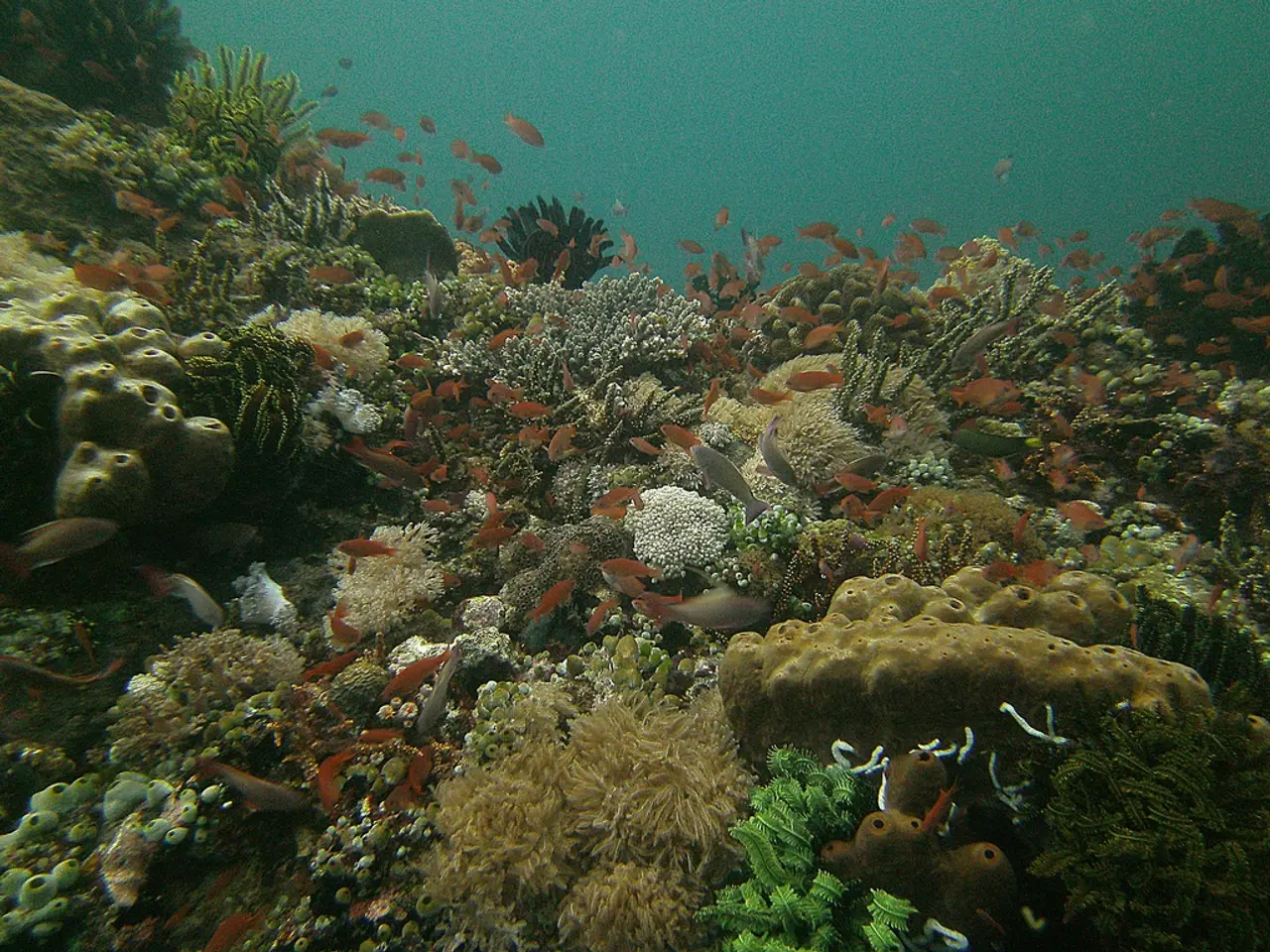Marine Tech Jobs Unveiled: Dive into Rewarding Career Opportunities in Marine Science
In the dynamic and ever-evolving field of marine science, the role of a technician is pivotal. With a growing emphasis on environmental conservation and sustainable practices, the demand for skilled marine science technicians is on the rise.
Key responsibilities for marine science technicians include operating and maintaining oceanographic instruments, collecting and processing ocean data, and supporting data analysis and interpretation. However, to excel in this role, a blend of technical, analytical, and communication skills is essential.
Technical competencies required include proficiency in diesel engines and electrical systems, boat handling, navigational instruments, and general machinery. Marine technicians are expected to conduct tests, inspections, and diagnostic evaluations on marine equipment, identify problems early, and perform necessary repairs or maintenance. They should also be adept at using hand and power tools and handling heavy equipment safely.
Analytical and cognitive skills are equally important. Marine science technicians must use logic and reasoning to evaluate alternatives and find solutions to technical problems, identify complex problems, review related information, and develop viable solutions. They should also assess costs and benefits to take the best course of action and monitor performance of equipment and themselves for continuous improvement.
Communication and interpersonal skills are crucial in collaborative research and operational settings. Effective communication is key to conveying information clearly with coworkers and supervisors. Being attentive, listening fully, and asking appropriate questions are essential for building strong relationships within the team. A calm, friendly, and cooperative personality is suitable for working well in teams, often under challenging marine environments.
Proficiency in data collection and interpretation related to marine ecosystems, strong analytical skills important for understanding and applying scientific and technical knowledge in marine settings, and the ability to work as part of a larger team, including marine biologists, environmental scientists, and policy makers, are all vital for success in marine science technician roles.
Staying updated on industry trends is important, as new technologies and methodologies emerge regularly in the marine science field. The future of marine science technician careers is influenced by technological advancements, environmental conservation initiatives, interdisciplinary collaboration, and increased job opportunities in coastal regions.
Preparation is key for interviews, as researching the organization and the specific role being applied for, being ready to discuss experiences and how they relate to the job, and practicing common interview questions can help reduce anxiety. Considering specialization in areas such as marine biology, oceanography, environmental policy, aquaculture, or marine conservation can help set candidates apart and demonstrate expertise in a particular area.
Common career paths for marine science technicians include field technician, laboratory technician, research assistant, environmental consultant, aquarium or marine park staff, and marine policy advisor. Entry-level positions can provide essential experience and open doors for advancement.
Key responsibilities for marine biologist technicians include collecting water and sediment samples, assisting in field research, maintaining laboratory equipment, and analyzing data. Factors influencing marine science technician salaries include experience level, education, certifications, industry type, and job role.
In 2023, individuals looking to thrive in this field need specific skills, including analytical skills, technical proficiency, communication skills, problem-solving abilities, attention to detail, teamwork and collaboration, and knowledge of environmental regulations. Networking is crucial in the marine science field, as attending conferences, workshops, and seminars, joining professional organizations, and connecting with professionals can lead to job opportunities and valuable mentorship.
Utilizing online job portals such as MarineCareers.net, OceanJobs.com, and LinkedIn can be useful resources for finding marine science technician job opportunities. Job opportunities for marine science technicians are expected to increase in coastal regions, particularly in areas that rely on fisheries and tourism for their economy.
In conclusion, the marine science technician role is multifaceted, requiring a combination of technical, analytical, and communication skills. With a steady, team-oriented attitude, marine science technicians play a crucial role in studying ocean environments, collecting and analyzing data, and supporting research efforts, contributing significantly to our understanding of the marine world and the conservation of its resources.
- The demand for skilled marine science technicians is on the rise due to a growing emphasis on environmental conservation and sustainable practices in the dynamic field of marine science.
- Proficiency in diesel engines and electrical systems, boat handling, navigational instruments, and general machinery are essential technical competencies for marine technicians.
- In addition to technical skills, marine science technicians must possess analytical skills to find solutions to technical problems, identify complex problems, and assess costs and benefits.
- Communication and interpersonal skills are vital for conveying information clearly within the team and building strong relationships in collaborative research settings.
- Staying updated on industry trends, such as new technologies and methodologies, is crucial for the future of marine science technician careers.
- To set candidates apart in the interview process, researching the organization, discussing relevant experiences, and specializing in areas like marine biology, oceanography, or environmental policy can be beneficial.
- Networking is essential in the marine science field to find job opportunities, attend conferences, join professional organizations, and connect with professionals for valuable mentorship.




